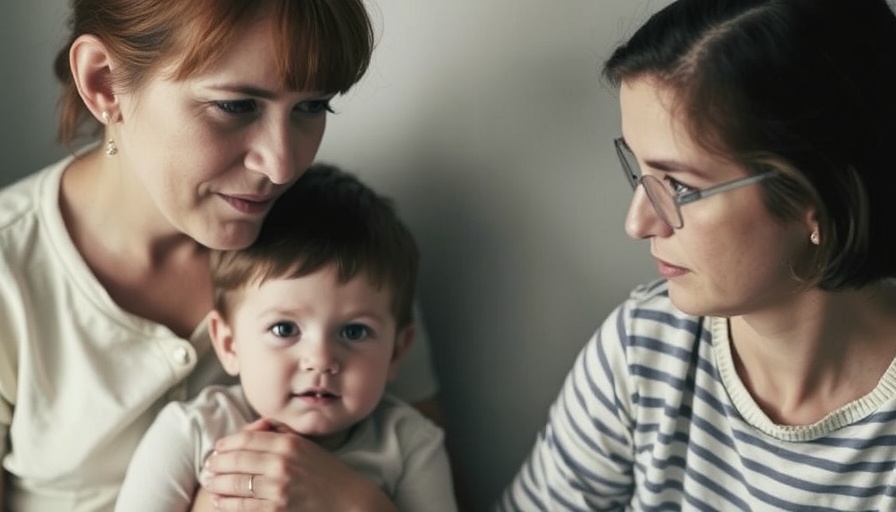
A Grief Journey: Navigating Loss and Delusion
The story of Mary Ann Kenny offers a poignant look at how grief can manifest in unexpected and sometimes troubling ways. After the sudden death of her husband, John, Kenny found herself facing profound despair and anxiety, hallmarks of losing a loved one. The emotional weight of grief can be overwhelming, leading many to seek therapy or medication in hopes of regaining some sense of normalcy. In Kenny's case, however, the path to healing became fraught with confusion and delusion, illustrating the complex interplay between mental health and grief.
The Search for Normality Amid Chaos
For many who experience personal tragedy, maintaining a semblance of normality can be a significant challenge. Kenny’s immediate instinct was to shield her two young children from the upheaval of her grief. As she took steps to navigate her sorrow through therapy and sertraline, a type of antidepressant, she encountered severe side effects that only intensified her emotional turmoil. Her journey reflects the struggles many individuals face when coping with intense grief, showcasing how therapy is not a panacea and can, in some cases, exacerbate existing worry and anxiety.
The Impact of Medication on Mental Health
Kenny's experience with sertraline highlights a critical discussion point in mental health: medication can have widely varying effects on individuals. While some may find relief in pharmaceuticals, others may experience adverse reactions that lead to additional psychological challenges. In her case, the reaction to the medication sent her spiraling into a state of fear and paranoia, where thoughts of harming her children haunted her. This underscores the importance of careful monitoring and open dialogues between patients and healthcare providers when embarking on a new treatment plan.
Understanding Grief Beyond Personal Experience
The emotional journey depicted by Kenny resonates with many who have faced similar experiences. Grief can manifest in a variety of ways, affecting thoughts and behaviors in profound manners. Einberg, a mental health therapist, emphasizes the understanding that reactions to loss aren't uniform and can vary widely dependent on personal history and resilience. Many who share Kenny's experience may find comfort in community or support groups that validate these complex emotions, reinforcing that they are not alone in their journey through loss.
The Role of Community and Support
Being part of a supportive community can be a vital aspect of healing after a loss. Engaging with others who have similarly experienced grief can foster deeper connections and help alleviate feelings of isolation. Strengthening these ties often leads individuals to explore various health and wellness options tailored to mental health and overall well-being. In Kenny's case, participating in support groups or discussions about mental health after significant loss may have assisted her in managing her mental hurdles more effectively.
The Importance of Finding Your Healing Path
Mary Ann Kenny's story illuminates a broader conversation about health and wellness following profound loss. It is crucial to understand that healing is a highly personal journey; what works for one person might not be suitable for another. Exploring community health and wellness resources can provide valuable tools in managing grief effectively, from traditional therapy to alternative medicine avenues such as naturopathy. Those navigating similar grief journeys can significantly benefit from the insights of others while also learning to embrace their unique experiences.
 Add Row
Add Row  Add
Add 




 Add Row
Add Row  Add
Add 


Write A Comment